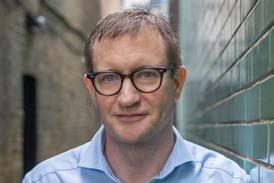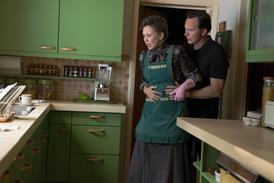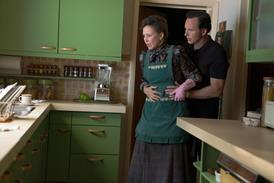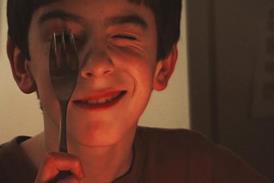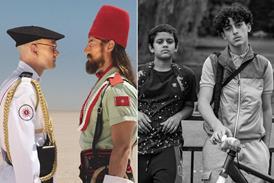Sophy Romvari’s accomplished first feature dramatises her own childhood experiences
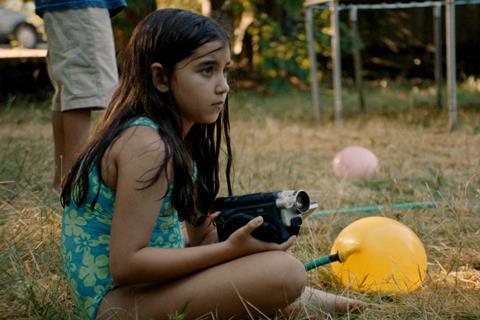
Dir/scr: Sophy Romvari. Canada/Hungary. 2025. 90mins
A lyrical study of the twisting nature of memory and the lasting impact of childhood trauma, Canadian filmmaker Sophy Romvari’s debut Blue Heron has an authenticity and sensitivity that steers it through occasional moments of narrative affectation. The story of a Hungarian immigrant family of six settling into a new home on Vancouver Island in the late 1990s, as told through the eyes of the youngest child, the film’s slow pace and contemplative tenor rewards a patient viewer.
Blurs the line between fact and fiction in a woozy, laconic way
Romvari’s well-received short films include Still Processing (2020) – with which this film shares key themes – Tiger Eats A Baby (2020) and It’s What Each Person Needs (2022), and Blue Heron represents a confident, creatively bold move to features. The film plays Toronto after premiering at Locarno, where it won the best first feature award, and next moves on to berths including San Sebastian and London. It should continue to impress on the festival circuit, and could well attract a distributor looking for distinctive new voices.
Based on writer/director Romvari’s own experiences, Blue Heron blurs the line between fact and fiction in a woozy, laconic way; this is a drama in which perspectives shift, timelines merge and soft-focus sequences are layered with a documentary-style aesthetic. It’s all part of the journey of recollection and discovery for protagonist Sasha – who we see as both a young girl and an adult – and for Romvari, who is using the narrative to unpick her own memories, to get to better grips with her own formative experiences.
Sasha (Eylul Guven) is eight years old when she arrives with her family to Vancouver Island, a beautiful setting which promises clear skies and the freedom of the great outdoors. And there is plenty of that; Sasha plays with her siblings, goes to the beach, makes tentative friends with local girls. But a dark cloud has followed them, and seems to hover over her older stepbrother Jeremy (an excellent Eddik Bedoes). His increasingly erratic behaviour and the devastating effect it is having on his mother (Iringo Reti) and step-father (Adam Tompa) suggests serious mental health issues. While Sasha struggles to understand Jeremy’s pain she nevertheless seeks a closeness with him – the film is named after a stolen trinket he gifts her in a rare moment of connection.
There is a great deal happening under the surface here – Jeremy’s demons, forever threatening to spill over; his mother’s anxiety; Sasha’s confusion. Sensitive craft choices join with restrained, honest performances to give a window into these tumultuous inner worlds. Victoria Furuya’s production design is restrained and meticulous, firmly setting the film in the late 1990s but with an authentic, lived-in quality befitting this impecunious family. Sound design, from Peter Benjamin Lukacs, is also carefully calibrated, foregrounding everyday noises (a lawnmower, trampoline strings, the click of a camera) so that they intrude on this deceptively quiet world. Cinematographer Maya Bancovic shoots with a long lens that emphasises the distance between Jeremy and his family, and the self-imposed isolation between the family and their new community.
The second half of the film jumps forwards 20 years, with Sasha now a filmmaker played by Amy Zimmer. She has embarked on a project about her brother, now dead, to try and understand him – and what happened to him. A great deal of this section is shot verité-style, including a long conversation with social care workers (played by real life professionals) who discuss the difficulties of Jeremy’s case, the limits of the help he was able to receive.
There are also sequences in which Sasha imagines herself returning to her childhood home in the guise of a social worker, having a frank conversation with her parents about her brother. (This conversation happened earlier in the film, with a different actress playing the social worker; the then eight-year-old Sasha heard only snippets.) Romvari and editor Kurt Walker keep a tight hand on proceedings but this overt manipulation and bending of chronology does act as something of a spoke in the wheel of an otherwise fluid narrative.
It’s certainly not enough to derail Blue Heron, however, and Romvary’s point remains clear, and poignant: that childhood can cast a long shadow, and that it can only take on a definitive shape when viewed from a distance.
Production companies: Nine Behind, Boddah
International sales: More Than Films, morethan@morethan-films.com
Producers: Ryan Bobkin, Sara Wylie, Sophy Romvari, Gabor Osvath
Cinematography: Maya Bankovic
Production design: Victoria Furuya
Editing: Kurt Walker
Main cast: Amy Zimmer, Eylul Guven, Iringo Reti, Adam Tompa, Edik Beddoes, Liam Serg, Preston Drabble

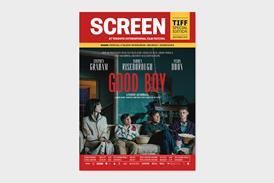
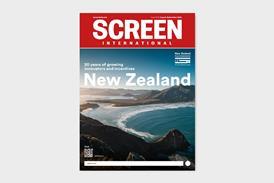

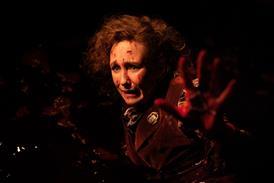
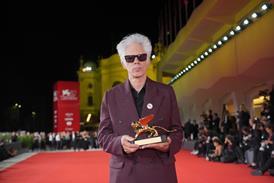
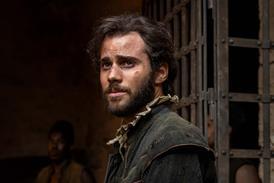

![[Clockwise from top left]: 'The Voice Of Hind Rajab', 'A House Of Dynamite', 'Jay Kelly', 'After The Hunt', 'The Smashing Machine'](https://d1nslcd7m2225b.cloudfront.net/Pictures/274x183/1/7/0/1459170_veniceawards_837515.jpg)

